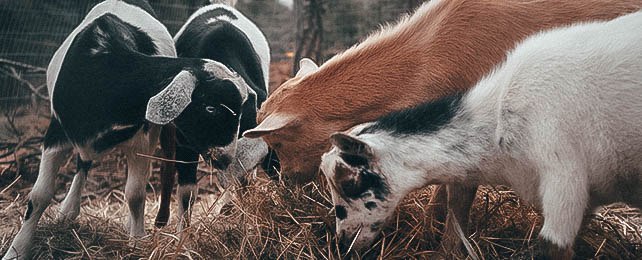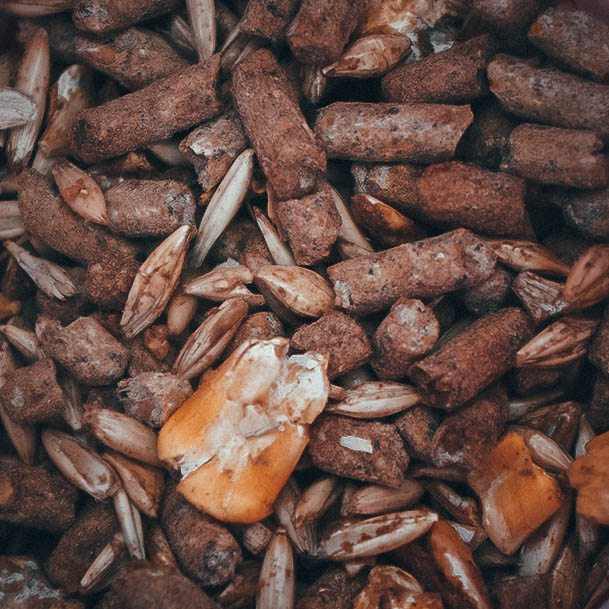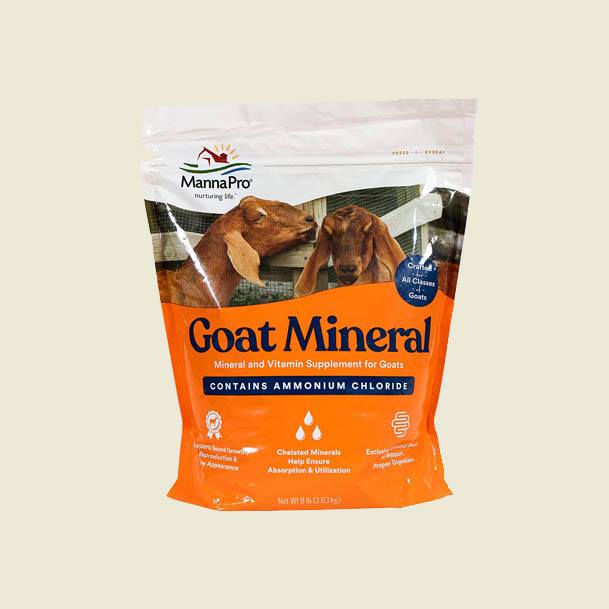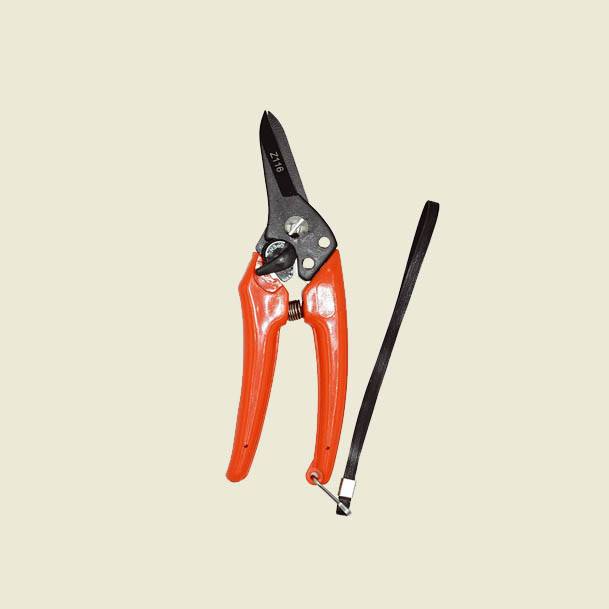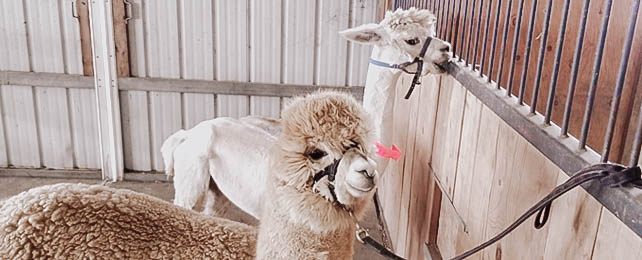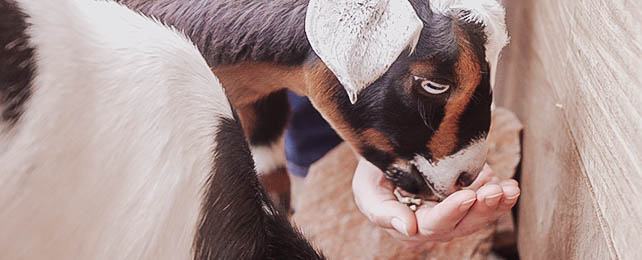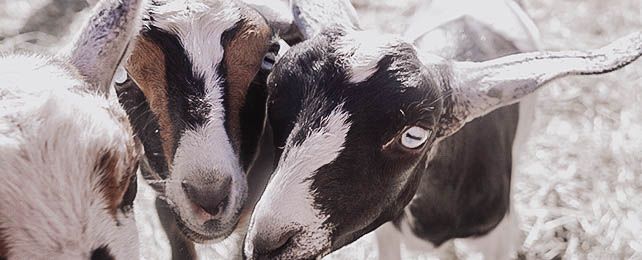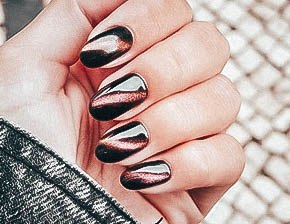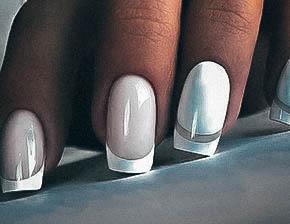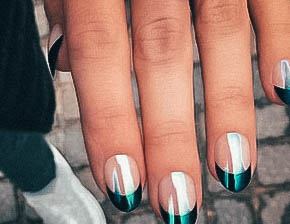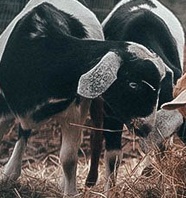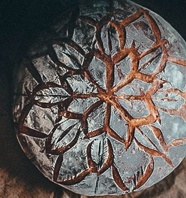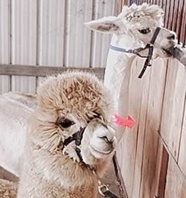We’ve condensed virtually everything you need to know goat care in a super simple and short reference guide. No filler and no fluff, just the top things you should know.
Now, everyone has different opinions or things that have worked for them when managing animals.
Be cautious with online information, as there is a lot of downright bad advice out there. One of my favorite quotes is “conventional wisdom is almost always wrong;” when you raise goats, you will eventually discover why.
We had so many questions when we first got started, and along with all the accurate information, we unfortunately found equally just as much fabricated guesswork. It’s a bizarre thing to encountered, but ultimately firsthand experience sheds light on the truth.
We base our management on vet accepted practices and lots of personal experience. Always consult your veterinarian before taking any advice, even ours!
How To Take Care Of Goats:
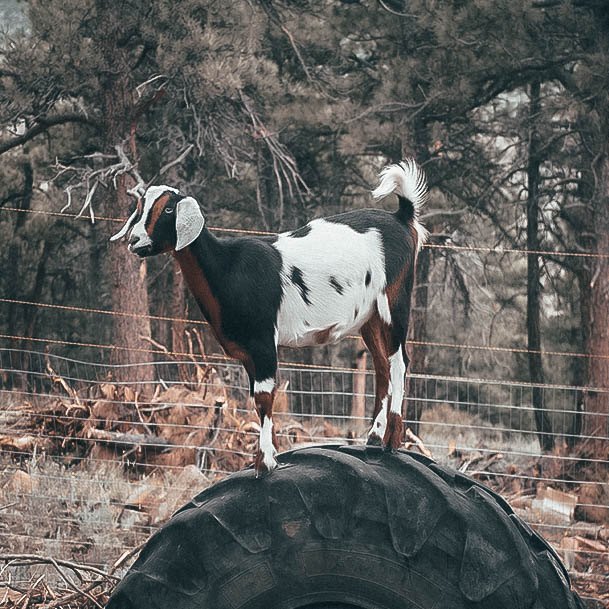
General information: Kids should be dewormed (if needed), vaccinated, disbudded and tattooed (if registered) before leaving for their new homes weaning, usually 8-10 weeks of age.
If you plan on keeping your kids, it’s equally important to also keep a health care record on hand for each goat. Doing so can make a huge impact on the degree of success in solving future problems. Wethers can be castrated by banding.
If you plan on selling your livestock, here’s a general disclaimer you can use:
“All goats are sold as healthy at the time they leave our farm. Any costs associated with shipping or transportation, including any health certificates, testing crates, etc. or the responsibility of the buyer. Breeding stock will be free of disqualifying faults at the time of pick up. However once they leave our farm, there are no other guarantees to the future health, height or quality of the animal.”
1. Getting goats used to you:
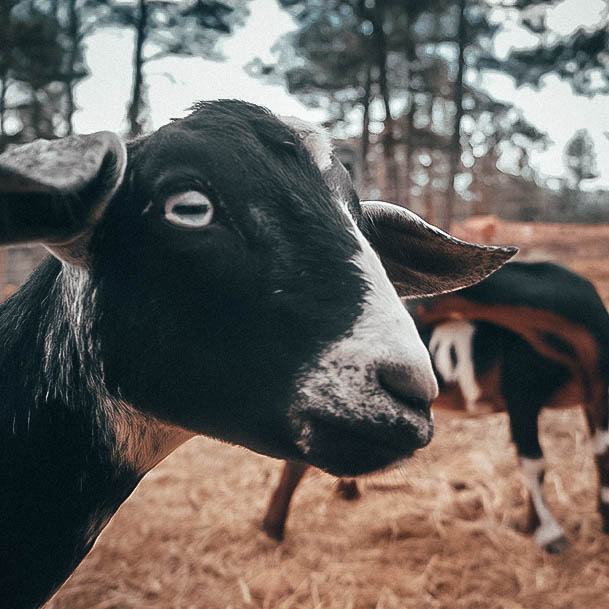
Just because your goats are welcoming you with open arms doesn’t mean you are failing at the art of how to take care of goats. New goats will be scared and not want you to come near them for a while; this is normal.
Would you feel if someone grabbed you and put you in a new place not knowing anything?
If you spend some time in the pen with them, just sitting there with grain and treats, they will eventually show an interest in you. Read a book, play on your phone or talk to a friend while sitting in the pen and they will eventually come to you. Then they will not leave you alone and might yell at you for a while after leaving. They are ok, they just love you!
We noticed it can take anywhere from 2 weeks to a month for even the most timid goats to make a full social turnaround. We try to gently pet out goats while feeding them pellets, as even the most human-shy goat will do anything for yummy pellets.
2. Feeding goats
Make all feeding changes very slowly with goats!
Treats: Your young goats may not like treats but give them time and they will!
Goat treats: Fleet farm, tractor supply Animal crackers are wonderful.
Fruit: Some goats like fruit, others simply don’t. We love Cuties (oranges) at our farm.
Pine Needles: Our goats love to munch on our pine trees. They prefer fresh cut green needles but will chew brown needles; just not as often. Please be careful of feeding cut Xmas trees, as they are usually sprayed and can make a goat extremely sick. We feed our goats both dead (brown) and fresh (green) pine needles with no issues, ever. We are able to feed them as much pine as they want. For females who are pregnant, pine may cause abortion; so with that in mind, avoid feeding them pine during those periods.
Bark: Goats will chew on pine bark, as it contains valuable tannins that can help prevent internal parasites.
Hay: Feed your goats fresh hay 2 times a day and enough to the point that they usually always have some. I use grass hay, low dust, no mold. You can also use a grass/alfalfa mix, however, it could throw off the calcium phosphorus balance. Hay needs to be in feeders off the ground due to parasites; this is important! Consider the fact that goats will track mud, muck, poop and pee with their hooves. You don’t want that mixing into their food.
Grain: Goats do not require grain. I feed an extraordinarily little grain to our bucks and wethers as they can develop urinary calculi. If you feed wethers and bucks grain you should sprinkle ammonium chloride on the grain to avoid these issues. Our dry and pregnant does get a small amount of grain once a day. Our milking does get a small amount 2x daily. We feed Rocky Mountain Sweet Freed from Big R. A good one for wethers is a goat starter or creep feed until 4 months. We order creep from Divide Feed.
Minerals: Goats are more sensitive to mineral issues than other livestock. Loose mineral needs to be always available. We use Manna Pro Goat Mineral. Do not listen to the feed store employee that says goat minerals are same as cattle mineral block; it is not. If you feed cattle mineral block, you will end up with deficient goats. Remember that goat minerals can hurt sheep!
Baking soda: Always free choice with mineral. It helps with bloat if they eat too much or just if they have an upset tummy.
Black sunflower seeds: These can easily be sourced at Tractor Supply. Give them a handful daily or place them in a container with drilled holes so they must work in order to get them out. These wonderful seeds will help to make your goat’s coat shinier. Plus, they are a naturally good and healthy treat.
Important minerals: Copper Grain will have a little, but not enough. Often if you are not in a copper deficient area, then you will be simply fine. However, if you notice your goat’s hair is dull and has a red tone to it, then you will need a copper bolus.
Selenium: Can be toxic at high doses, but deficient in a lot of areas. Weak muscles are a sign of selenium deficiency.
Zinc
Iodine
Water: Goats love warm water, especially in the winter. They will not drink water that is remotely dirty, so your stock tank needs to be changed on regular basis.
3. Goat Housing:
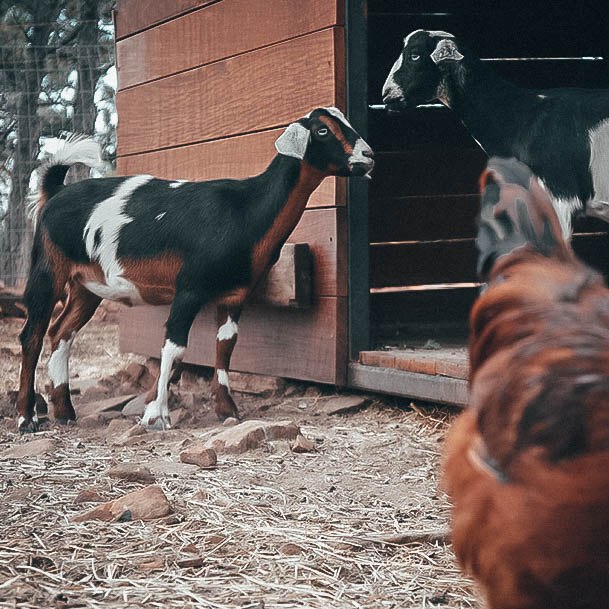
Goats need fresh air and wind-resistant places to sleep. Clean bedding is a must as goats will generally not sleep on damp or wet bedding. We found that our goats prefer bare wood slat boards over mulch, pine shavings and other bedding materials.
In the winter you can use barn lime for the base of the floor, topped with wood chips or straw. Ensure the layer of wood chips or straw are deep enough so that the goats do not eat the barn lime. Keep adding bedding to the top often, as it can dirty frequently. You can also strip layers should the bedding get too dirty. We usually clean barns in the spring.
Goats can handle the cold weather and frigid climates well; except for kids, old or pregnant goats. However, goats do not handle wind well. We use deep straw with small shelters within the barn that they can huddle inside. We do not recommend heat lamps with adult goats as this method is the number one cause of barn fires!
4. Goat Health
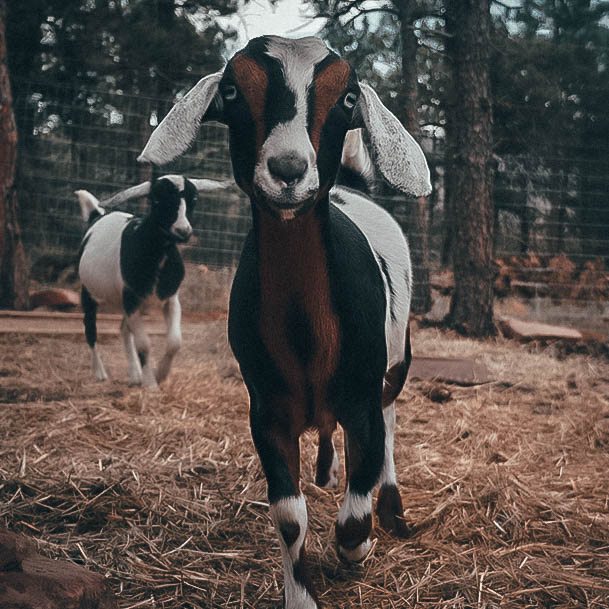
People tend to think goats are indestructible because they play, jump and leap as if they were. They are not! Goats can die from seemingly small things like switching feed too quickly for example.
Goats can carry ZOONOTIC disease. Note there are a few goats diseases that can infect humans. Wash your hands! If you have a sick goat, wear gloves and call your veterinarian! (Rocky Top Vet is our local choice)
Goat hoof care: Hooves must be trimmed frequently. This can be done by yourself. YouTube has a lot of great videos if you are curious about learning how. If hooves are neglected for too long, a goat can be permanently injured. I purchase my hoof trimmers off Amazon ZENPORT Z116. Love them!
Goat horns: All of our goats are disbudded or polled. Buck and wethers tend to develop scurs, this is just something that happens. If the scur is hurting the goat or is likely to break off, a vet can remove it. Otherwise, they are harmless.
When we first got goats, we couldn’t foresee why anyone would ever want to remove their awesome, beautiful looking horns… Later we realized that you can’t show goats with horns, and when not done at an early age, it’s far too risky to do so down the road. This can further diminish your livestock sales as well.
Banding: It’s a simple process that uses a single rubber band. However, you must check frequently to make sure the site does not become infected. Within time, the “petal” as they call it, will fall off on it’s own.
CAE, CL and Johnes: We test our goats yearly. All of our goats have come from other clean farms or they were born here.
Health Emergencies: Seek a veterinarian immediately. Do not wait to call a vet. Many will help you over the phone. Call Rocky Top Veterinarians if you are in their service area. When you notice a sick goat, call a vet! For birthing emergencies in particular, and all sorts of other major (right this moment) health issues, contact your local college university. Some professors train students on rare operations, medical procedures, and so on; they often can do so in them middle of the night.
A down goat is a dying goat you need to act quickly.Rumen emergencies: If your goat gets into the chicken feed call your vet. Goats will gorge themselves full of chicken feed, which is why it needs to be kept out of reach of goats. A little/tiny amount of fed is not a big deal, but if you are unsure, seek a vet.
After rumen issues: Even after you have successfully treated other rumen issues such as acidic rumen, a slow build of “bad” microorganisms over the next few hours or days can occurs since the rumens balance has been disturbed. This can be parasites or bacterial build up, so even after the goats seems well, keep an eye on them for other symptoms.
Bloat: New owners often encounter this, and it can be fatal. Make sure you know the signs of bloat and what to do when it happens. To avoid the most common reason for bloat, make diet changes slowly.
Dehydration: If a goat is sick, they become dehydrated quickly. A small amount of molasses in water can encourage drinking you may need to tube, call a vet if this happens. Have the vet teach you; you should know how to perform this procedure. We use Gatorade and Pedialyte, but our favorite product is DripDrop packets (Our military medic friends would carry these tiny packets to treat combat dehydration fast); our goats love drinking it on hot or stressful days.
Diarrhea: This should not be ignored. You need to treat the diarrhea and dehydration that comes with it.
Sick Goat Symptoms
See:
– Not eating
– Not drinking
– Not getting up
– Not chewing cud
– Not urinating (straining to urinate)
– Goat poop not pelleted
– Pale eyelids & gums
– Limping or staggering
– Drooping ears
– Pressed head against fence or wall
– Bloated
– Kicking belly
– Running nose or eyes
– Isolation
– Hanging tail
– Standing hunched
– Dull coat
– Shaking head
– ShiveringTouch:
– Hot udder
– Abnormal temperatureHear:
– Grinding teeth
– Coughing
– Abnormal crying
– No rumen movements
– Abnormal panting or groaningSmell:
– Recognize off smelling goat breath
– Sweet or off smelling urineTaste:
– Be aware of off tasting milk
5. Things to always have on hand for goat care
Our list does not include kidding supplies. A lot of goat dosages are online for full size goats, not dwarfs. Be sure to always check your math and dosages.
CD Anti-toxin (not toxoid): Must be ordered at Jeffers. Use this for overeating; it’s a lifesaving medicine.
Di-methox 12%: For coccidi prevention. Vet purchase only.
Ivomec injectable: I leave that for the vet; we use pour on for lice and/or mites.
Valbazen: Wormer (Jeffers)
Nu-stock: Any skin issues; stinks but amazing
Probiotic goat powder: Keeps digestive system equal, especially under stress or weather.
Electrolytes (Pedialyte or Gatorade): For dehydration
20 g needles and syringes:
Molasses: Give this to a down goat, rub it on gums, can be lifesaving!
Baking soda: Treats bloat and upset tummy.
Pen G: A short action antibiotic nice to keep on hand you never know!
Monthly care
Check hooves, trim if needed.
Restock grain & low supplies
Clean up barn area
– Remove manure & soiled bedding & old, ruined hay
– Straighten up medical supplies, restock if needed
– Repair anything brokenClean up outside pen areas
– Remove manure and soiled hay
– Repair any broken fencing or broken areas on shelters.
Yearly care
Determine if your goats will need supplements and how often
– Copper boluses
– SeleniumDetermine if you will give CDT, pneumonia or any other shots
Plan what you will repair & build in the next year
Deep clean barns, shelters & milking areas
Mark calendars:
– Breeding
– Kidding
– Weaning
– Shots
– Supplements
– Deep cleaning
Weekly care
Refill mineral and baking soda
Disinfect feeding troughs
Clean & disinfect water troughs; fill
Check fences for weak areas
Check eye color (refer to color chart)
– Dark pink = Excellent!
– Light pink = Act!
— Refresh memory about anemia symptoms
— Deworm
— Give a shot of b vitamins-Pale pink = At quickly!
— Begin treating for anemia immediately
— Deworm
— Give a shot of b vitaminsCheck general body condition
Give weekly herbal worm preventative
Daily care
Feed
Water check (and refilling if needed)
Milking
Mineral and baking soda check
Always use 5 senses-observe!
A note on CDT vaccinations
The vaccine commonly known as “CDT” or “CD&T” is a vaccination for Clostridium perfringens type C + D and tetanus.
This is the vaccine that everyone raising goats should use. The label directions should be followed closely, including those for handling and storage. The BarVac brand is what we use.
Does should be vaccinated for CDT approximately 30 days prior to giving birth to provide protection to the kids through the first milk, or colostrum.
Kids should be vaccinated at 4, 8 and 12 weeks of age.
All animals should get vaccinated every six months, or twice a year.
